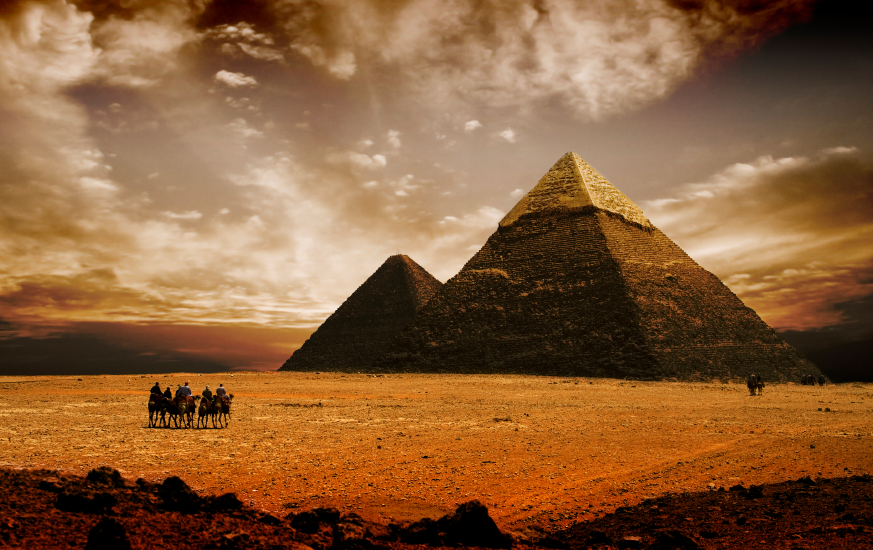By
Archaeologists believe they have found the key to unlocking a mystery almost as old as the Great Pyramid itself: Who built the structure and how were they able to transport two-ton blocks of stone to the ancient wonder more than 4,500 years ago?
Over the years, researchers posited a number of competing theories as to how the pharaohs engineered the monumental structure, which remained the tallest on earth well into the middle ages.
Experts had long established that the stones from the pyramid’s chambers were transported from as far away as Luxor, more than 500 miles to the south of Giza, the location of the Great Pyramid, but had never agreed how they got there.
However, the diary of an overseer, uncovered in the seaport of Wadi al-Jafr, appears to answer the age-old question, showing the ancient Egyptians harnessed the power of the Nile to transport the giant blocks of stone.

According to a new British documentary Egypt’s Great Pyramid: The New Evidence, which aired on the U.K.’s Channel 4 on Sunday, the Great Pyramid, also known as the Pyramid of Khufu, was built using an intricate system of waterways which allowed thousands of workers to pull the massive stones, floated on boats, into place with ropes.
Along with the papyrus diary of the overseer, known as Merer, the archaeologists uncovered a ceremonial boat and a system of waterworks. The ancient text described how Merer’s team dug huge canals to channel the water of the Nile to the pyramid.
Archaeologist Mark Lehner, who has devoted his career to uncovering who built the pyramids, explained how his team had uncovered a waterway hidden beneath the Giza plateau. It is believed that the stones which went into the pyramid were delivered to this area.
The experts also made new discoveries about boat building in the bronze age civilization. By restoring the wooden planks from the ceremonial boat and then scanning them with a 3D laser, they archeologists could discern how they were first assembled.
A separate team of archaeologists is currently working to make an internal map of the Great Pyramid at Giza using laser technology. The group, from the ScanPyramids project, has announced the discovery of a series of voids in the pyramid which they believe may be hidden rooms.
More: Who Built Ancient Egypt’s Great Pyramid? Hidden Text Holds Clues to Thousand-Year-Old Mystery
























